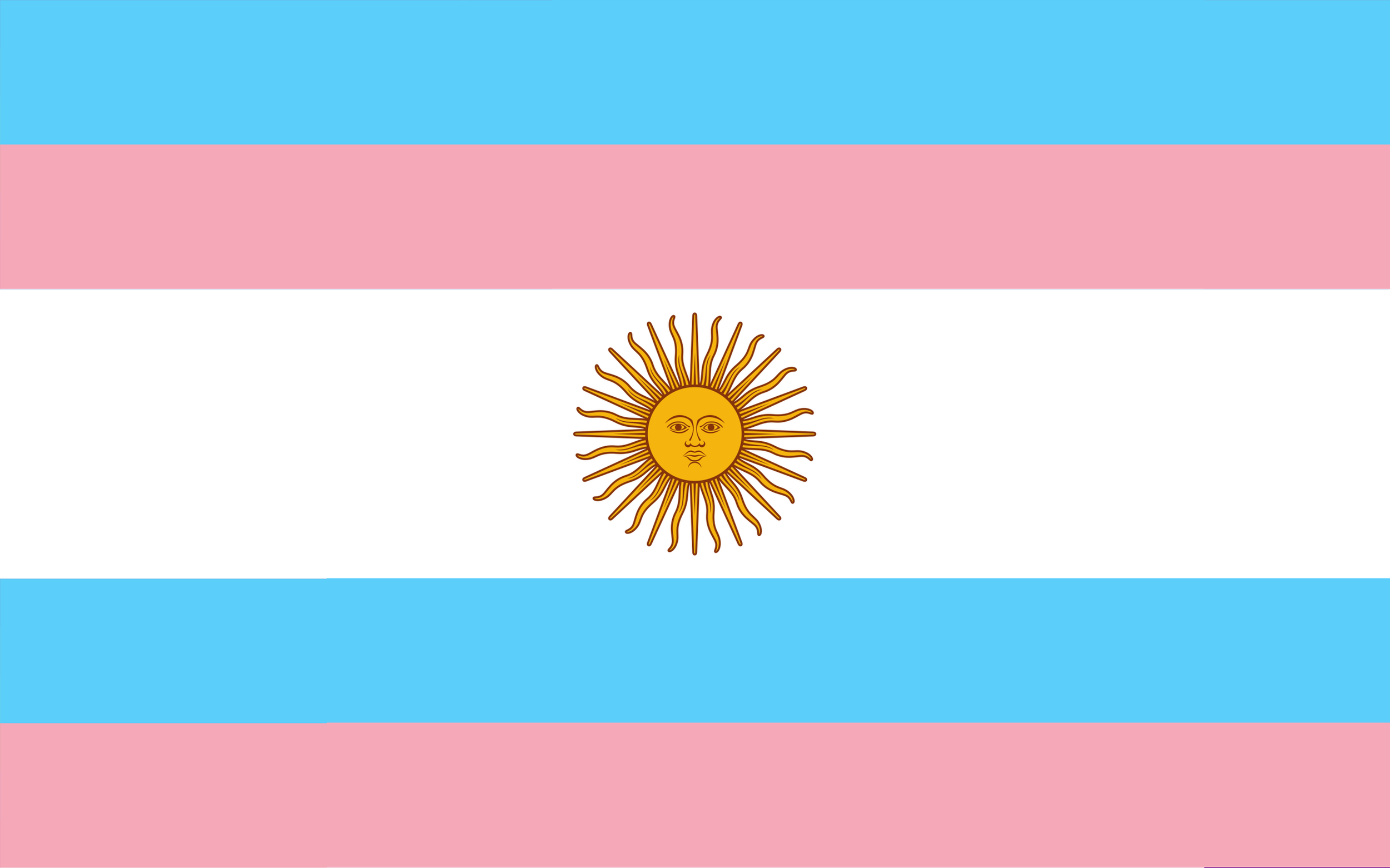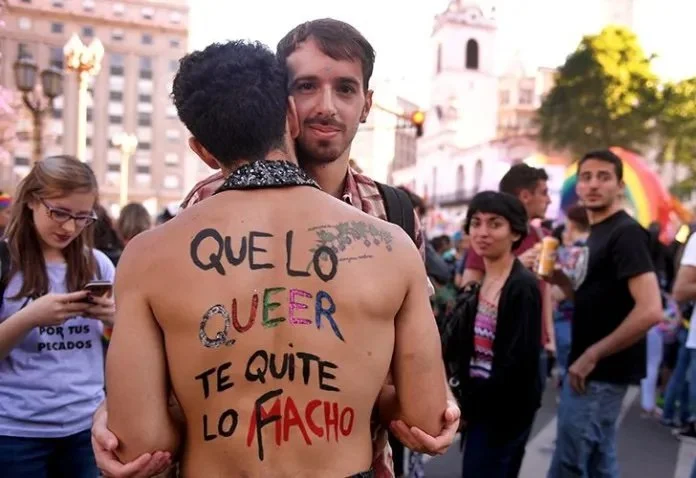The Proud Many
Flight from Russia by its queer citizens has increased considerably in the wake of long-winded oppression implemented by president Vladimir Putin, but as ABC News reported just a few days ago, many refugees have set their hopeful eyes on Argentina. The Argentine LGBT Federation recently reported a steep rise in inquiries for asylum by Russian LGBTQ+ refugees, and no wonder: Argentina rates as one of the safest countries in the world for queer people, with its societal acceptance of homosexuality ranked as the highest in South America, and decades’ worth of legislation and officially recognized protections to back it all up. As we enter a somewhat embattled Pride Month in the United States, let us examine Argentina’s storied history of LGBT rights, and perhaps allow ourselves some hope that the rest of the world can follow their lead.
A young couple embraces after same-sex marriage is legalized in Argentina, July 15th, 2010.
What stands today as a near-utopian ideal for the rights of all queer people was not always so.
Though Argentina’s first federal Penal Code made no reference to consensual acts between adults (making homosexuality legal at the federal level since 1887), many local and provincial authorities criminalized homosexuality, allowing for heavy persecution of gay Argentineans lasting well into the late 20th century. Argentina’s return to democracy in 1983, however, allowed for the formal organization of an LGBT rights movement, which eventually coalesced into the Federación Argentina de Lesbianas, Gays, Bisexuales, y Transexuales (FALGBT) in 2006. Their efforts culminated in the introduction of the first pro-marriage bill in 2007, with same-sex marriage finally legalized nationwide on July 15, 2010.
The Argentinean LGBT Federation demonstrates in the lead-up to the legalization of same-sex marriage.
This major legislative victory was the opening act of several legal rights endowed to queer Argentineans. Since 2010, same-sex couples have been legally allowed to adopt, and mental health professionals are forbidden from diagnosing on the basis of sexual preference or identity. Additionally, the cities of Rosario and Buenos Aires both include the basis of sexual orientation in their anti-discrimination and civil rights laws. In 2012, the federal Penal Code was amended to penalize hate crimes based on sexual orientation and/or gender identity with up to life imprisonment.
Special attention should be paid to Argentina’s treatment and protections of transgender people. With the Argentine Senate’s unanimous 2012 passing of the Gender Identity Law, some of the most comprehensive transgender rights legislation in the world, adults were granted hormone therapy and sex reassignment surgery as part of their health care plans, as well as changes to gender, birth name, and image on civil registries without judicial or medical approval. Argentina is also one of the few countries in the world to legally recognize non-binary gender (identifying as neither male or female) on official documentation. These and other advances led the World Health Organization to cite Argentina as an “exemplary” country for provision of transgender rights. Buenos Aires in particular has a thriving LGBT scene, and Pride events and commemorations are celebrated year-round.
“May queerness purge your machismo/fascism.”
Despite discrimination and bullying still being visited upon the Argentine LGBT+ community, as well as a persistent homophobic sentiment at nearly all societal levels (as it remains, unfortunately, around the world), Argentina’s reputation as a haven for persecuted individuals of all backgrounds and orientations continues to grow, and with it persists the dream of another chance in a new world. Until the day arrives when all nations embrace individuality and cease punishment of the freely loving, Argentina stands as a glimpse into that colorful future.
Buenos Aires shows her stripes.





